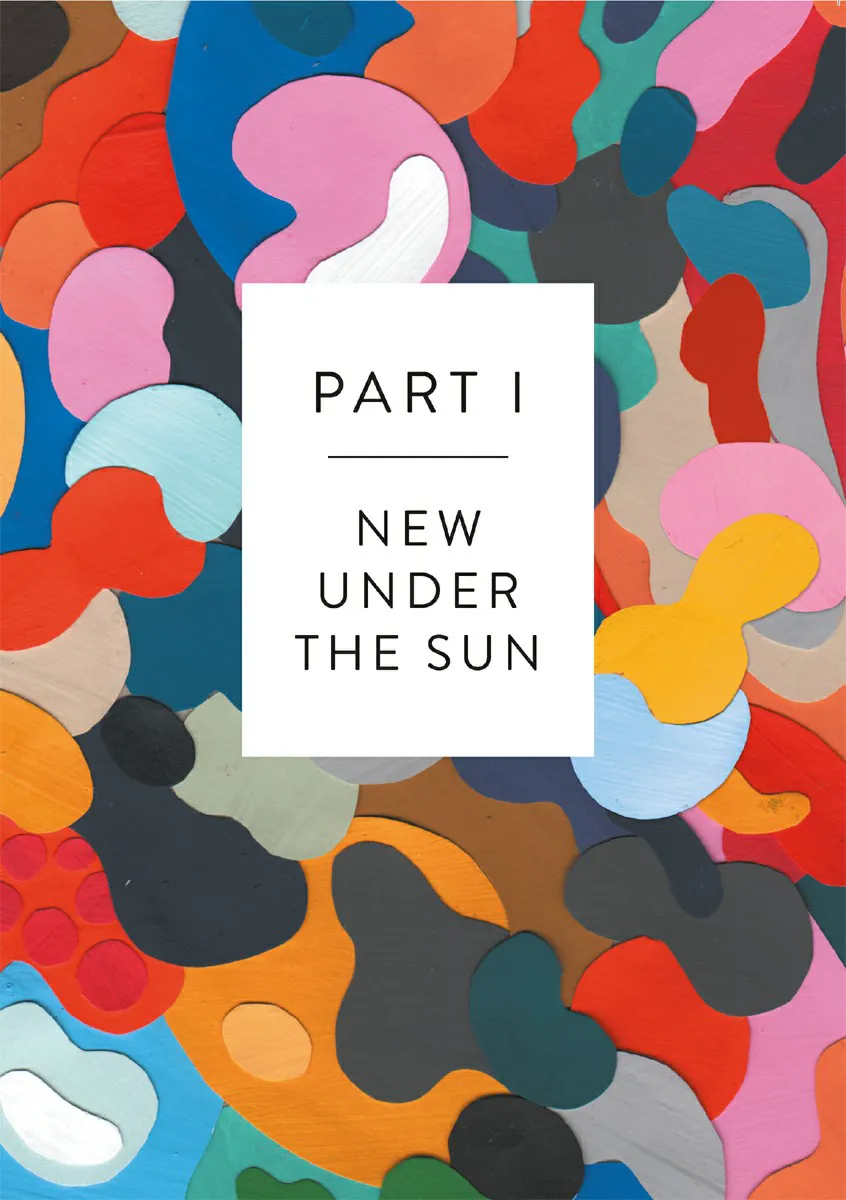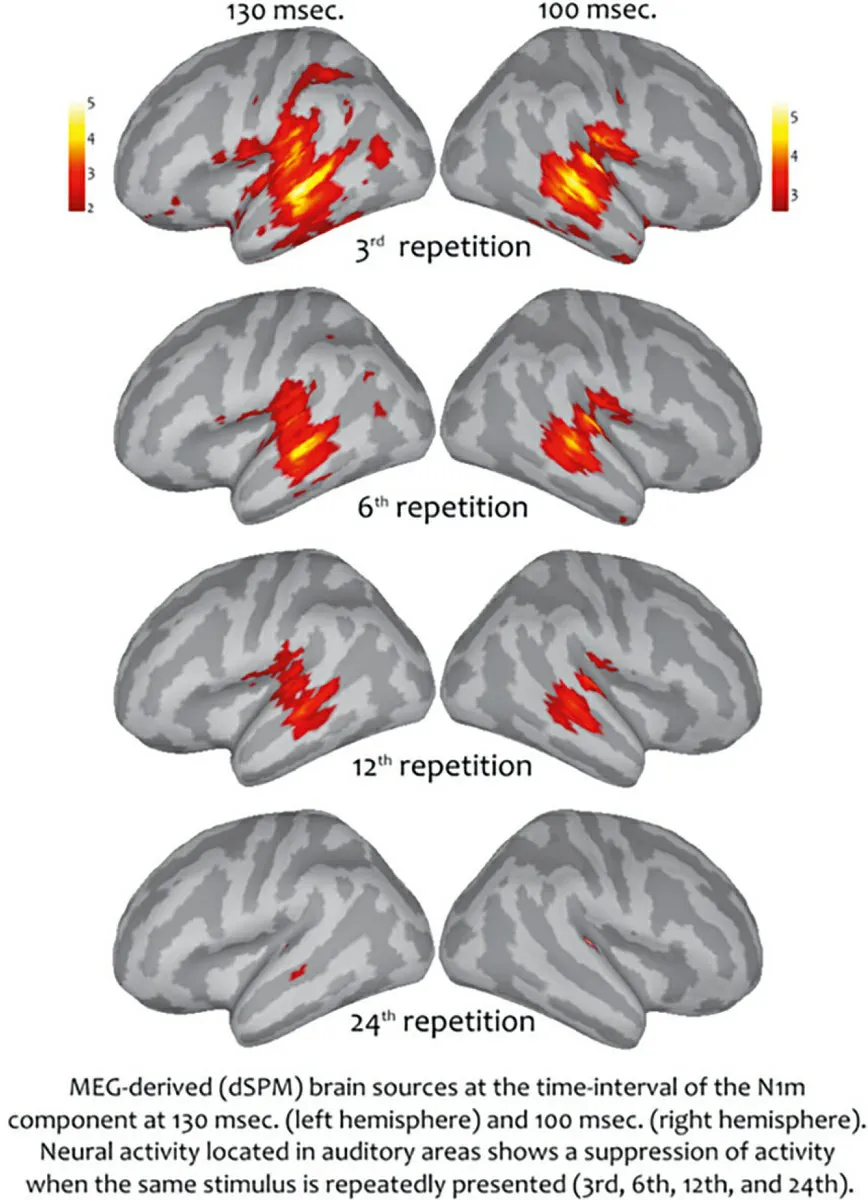CHAPTER 1
To appreciate the human requirement to innovate, look no further than the sculpting of hair on the heads around you.
This same sort of reworking is seen across all the artifacts we create, from bicycles to stadiums.
This all begs a question: why do hairstyles and bikes and stadiums keep changing? Why can’t we find the perfect solution and stick with it?
The answer: innovation will never stop. It’s never about the right thing; it’s about the next thing. Humans lean into the future, and there is never a settling point. But what makes the human brain so restless?
At any moment, roughly a million people are reclining in comfortable chairs thousands of miles above the surface of the planet. Such has been the success of commercial flight. It was not long ago that traveling through the sky was an unthinkably rare and risky adventure. Now it hardly lifts an eyebrow: we board like sleepwalkers, only becoming energized if something gets in the way of our expectation of delicious meals, reclining seats and streaming movies.
In one of his routines, the comedian Louis C.K. marvels at the degree to which travelers have lost their wonder with commercial flight. He impersonates a griping passenger: “And then we get on the plane and they made us sit there on the runway, for forty minutes. We had to sit there.” Louis’ response to the passenger: “Oh? Really? What happened next? Did you fly through the air, incredibly, like a bird? Did you partake in the miracle of human flight, you non-contributing zero?” He turns his attention to people who complain about delays. “Delays? Really? New York to California in five hours. That used to take thirty years. Plus, you would die on the way there.” Louis recalls his first experience with wifi on a flight, in 2009, when the concept was first unveiled. “I’m sitting on the plane and they go, “Open up your laptop, you can go on the internet.” And it’s fast, and I’m watching YouTube clips. It’s amazing: I’m on an airplane!” But a few moments later, the wifi stops working. And the passenger next to Louis gets angry. The passenger exclaims, “This is bullshit!” Louis says, “I mean, how quickly does the world owe him something that he knew existed only ten seconds ago?”
How quickly? Very quickly. The new rapidly evolves into the normal. Just consider how unremarkable smartphones are now – but it wasn’t long ago that we jingled coins in our pockets, hunted for phone booths, tried to coordinate meeting spots and botched encounters because of planning errors. Smartphones revolutionized our communications, but new tech becomes basic, universal, and invisible before our eyes.
The shine rapidly wears off the latest technology, and the same is true in the arts. The twentieth-century artist Marcel Duchamp wrote:
Fifty years later there will be another generation and another critical language, an entirely different approach. No, the thing to do is try to make a painting that will be alive in your own lifetime. No painting has an active life of more than thirty or forty years … After thirty or forty years the painting dies, loses its aura, its emanation, whatever you want to call it. And then it is either forgotten or else it enters into the purgatory of art history.1
Over time, even great works that once shocked the population will fall somewhere between the sanctioned and the forgettable. The avant-garde becomes the new normal. The cutting edge becomes less sharp.
This normalization of the new happens with the best-laid plans of corporations. Every several years, companies expend big bucks on consultants who tell them to switch up what they have – say, an open layout of desks versus the privacy of cubicles. As we’ll see later, there is no right answer about how to do this: it’s the change that matters. The consultants aren’t wrong, it’s simply that the details of their advice don’t matter. It’s not always about the particular solution, but instead about the variation.
Why do humans adapt to everything around us so quickly? It’s because of a phenomenon known as repetition suppression. When your brain gets used to something, it displays less and less of a response each time it sees it. Imagine, for example, that you come across a new object – say, a self-driving car. The first time you see it, your brain shows a large response. It’s absorbing something new and registering it. The second time you see it, your brain shows slightly less response. It doesn’t care quite as much about it, because it’s not quite as novel. The third time: less response again. The fourth time: even less.
Repetition suppression in action.2
The more familiar something is, the less neural energy we spend on it. This is why the first time you drive to your new place of work, it seems to take a long time. On the second day, the drive feels a little shorter. After a while, getting to work takes almost no time at all. The world wears off as it becomes familiar; the foreground becomes the background.
Why are we like this? Because we’re creatures who live and die by the energy stores we’ve built up in our bodies. Navigating the world is a difficult job that requires moving around and using a lot of brainpower – an energy-expensive endeavor. When we make correct predictions, that saves energy. When you know that edible bugs can be found beneath certain types of rocks, it saves turning over all the rocks. The better we predict, the less energy it costs us. Repetition makes us more confident in our forecasts and more efficient in our actions.
So there’s something appealing (and useful) about predictability. But if our brains are going to all this effort to make the world predictable, that begs the question: if we love predictability so much, why don’t we, for example, just replace our televisions with machines that emit a rhythmic beep twenty-four hours a day, predictably?
The answer is that there’s a problem with a lack of surprise. The better we understand something, the less effort we put into thinking about it. Familiarity breeds indifference. Repetition suppression sets in and our attention wanes. This is why marriage needs to be constantly rekindled. This is why you’ll only laugh so many times at the same joke. This is why – no matter how much you enjoyed watching the World Series – you aren’t going to be satisfied watching that same game over and over. Although predictability is reassuring, the brain strives to incorporate new facts into its model of the world. It always seeks novelty. The brain gets excited when it updates.
As a result of our neural machinery, good ideas don’t hold their shine. Take the list of the bestselling books from the year 1945:
1. Forever Amber Kathleen Winsor
2. The Robe Lloyd C. Douglas
3. The Black Rose Thomas B. Costain
4. The White Tower James Ramsey Ullman
5. Cass Timberlane Sinclair Lewis
6. A Lion Is in the Streets Adria Locke Langley
7. So Well Remembered James Hilton
8. Captain from Castile Samuel Shellabarger
9. Earth and High Heaven Gwethalyn Graham
10. Immortal Wife Irving Stone
These were books that seized the public imagination, but it’s quite possible that you’ve never heard of any of them. Recall that these were the books on everyone’s lips that year. The authors honored dinners with their presence. They signed countless copies. Presumably, they would have had a hard time imagining these books would someday be totally forgotten.
We constantly thirst for the new. In the movie Groundhog Day, a weatherman played by Bill Murray is forced to re-live a single day over and over again. Confronted with this seemingly endless loop, he eventually rebels against living through the same day the same way twice. He learns French, becomes a piano virtuoso, befriends his neighbors, champions the downtrodden.
Why do we cheer him on? Because we don’t want perfect predictability, even if what’s on repeat is appealing. Surprise engages us. It allows us to escape autopilot. It keeps us awake to our experience. In fact, the neurotransmitter systems involved in reward are tied to the level of surprise: rewards delivered at regular, predictable times yield a lot less activity in the brain than the same rewards delivered at random, unpredictable times. Surprise gratifies.
This is why jokes are structured the way they are. It’s never two guys who walk into a bar – it’s always three. Why? Because the first guy sets things up, and the second guy establishes the pattern. This is the shortest possible path for the third guy to break the pattern by sidestepping the brain’s prediction. In other words, humor arises from the violation of expectations. If you were to tell the joke to a robot it would simply listen to what each of the three guys does, but presumably it wouldn’t find the joke funny. The joke only works because the brain always tries to predict, and the punchline knocks it off balance.3
Advertisers know that constant creativity is required to keep us engaged. Their ads nudge us towards a particular brand of detergent or chips or perfume but if the ads aren’t continually refreshed, we’ll tune them out; they lose their impact.
The avoidance of repetition ...














